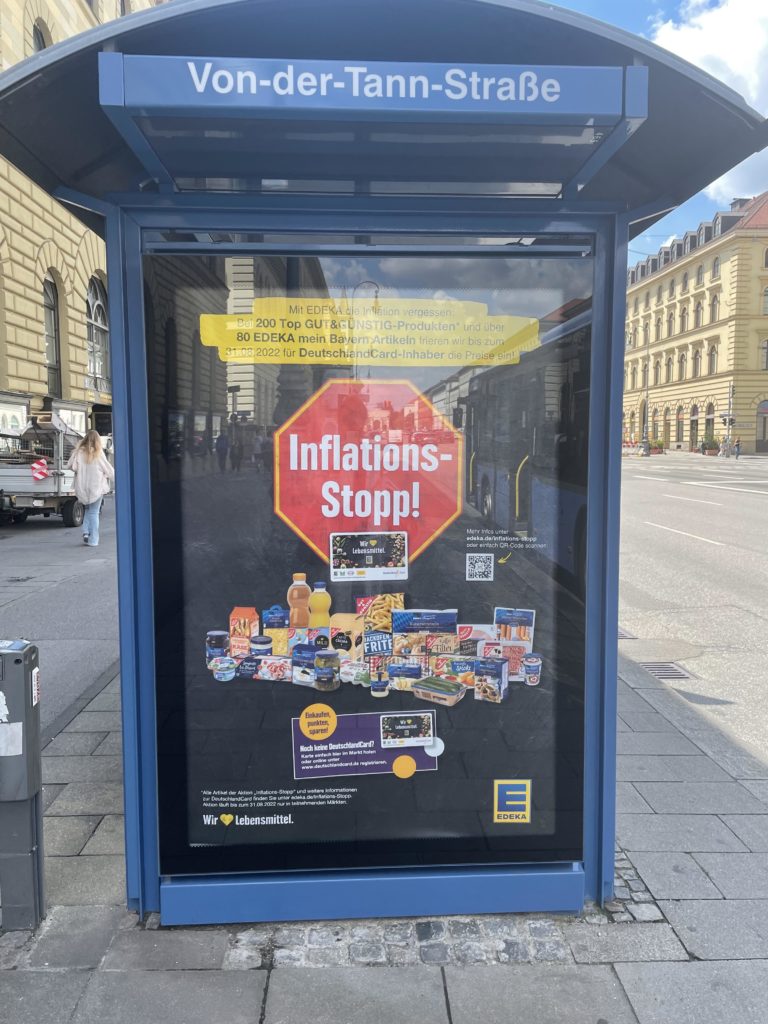Before coming to the MFA at Notre Dame, I worked as an ESL teacher in Berlin. It’s interesting to be on the other side of the classroom as a student and to experience first-hand certain topics and ensuing emotions that arose in my own classrooms in my B1 classroom at Goethe Institute.
One afternoon in the classroom, the topic was “globalization” — I and another American, an undergraduate student from Michigan, were getting into it (lacking the precise words can often lead students of a foreign language into defensiveness when speaking about complicated issues) about the negatives of globalization and capitalism, as we have experienced them in the USA, citing the difficulties and inequalities that occur as a result of an intensely individualist society. Meanwhile I noted that most of the white, western European students had positioned themselves on the side of pro-globalization, citing the privilege of travel and multi-culturalism as first and foremost positives of the concept. I agreed that travel was important for the expansion of perspective and in some ways an antidote to ignorance. Yet — I also offered — not many Americans have this privilege, due to flight costs and the distance between continents. Instead, in the USA, we consume the corporatized and commodified appropriation of foreign culture, a tangible effect of global capitalism.
When the teacher came to our table to listen and discuss, she proposed her own opinion in response: “I hate when Americans come and study abroad and are so negative about globalization” — which felt harsh in the moment, though I can understand her pointing out the privilege that we as white US-Americans have to travel and study abroad. My sister, who was recently accepted to a Masters program in Berlin, also received the following treatment at the visa office in California: “You’re American, you’re privileged, you don’t have to worry.”
During the break, I discussed with another student from Palestine how the stark inequalities and extreme poverty in the USA feel to me often overlooked by western Europeans, who operate under a more socialist capitalism, and who, in general, have a little more trust in their government to provide for their basic needs — who have a more reliable relationship to health insurance or comfortable allowances for maternity leave, for instance. She said she had no idea what the USA was like, having never visited. Actually, she seemed a little skeptical.
In general, there seems to be a mixed view of Americans in Europe, and in the years I’ve lived in or visited Europe (2008, 2014-2022) I’ve noticed that the views have become increasingly negative post-Trump, distilling many qualities of our culture into those perceived in reality TV. One word often used in Germany to describe us is “oberflächlich”, or “superficial”, denoting the style of complimentary socializing — the exaggeration of small talk and yes-culture — done in American society. However, this also reveals a mistrust of positivity in Germany. I was once told that a compliment, in German society, is the absence of critique.
Yet people interested in new-age spirituality, as a French friend of mine here in Berlin is, still look toward California as a beacon of promise, open-mindedness and self-realization, and as an antidote to the hyper-rational negativity of European discussion… Yes, many Germans I’ve met really love California. Maybe it’s a bit like a spa treatment, maybe even escapist.

An advertisement spotted — preceding the fear about war-time inflation — a special offer from the grocery story Edeka to freeze prices for Edeka-cardholders in Germany.